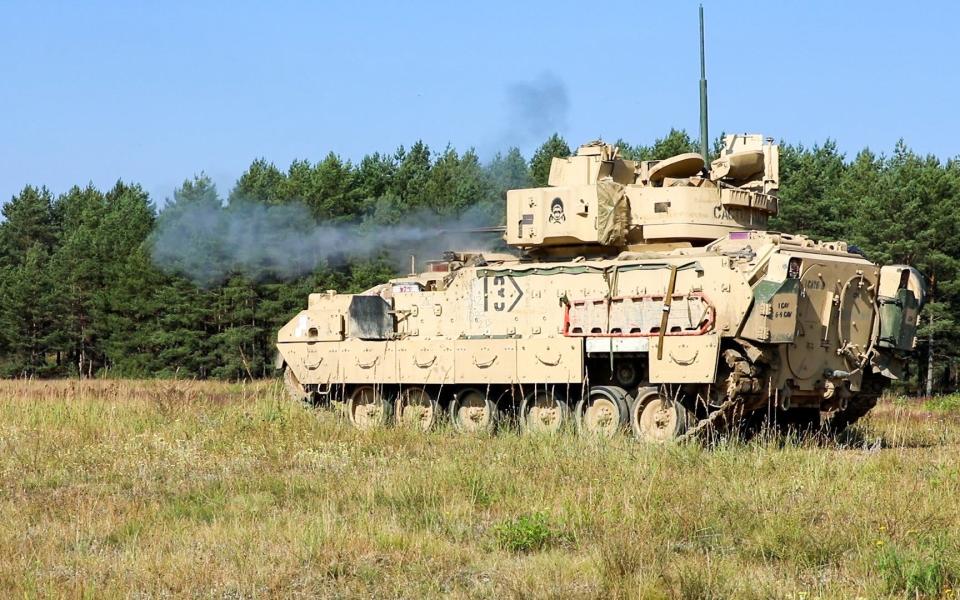Armed forces race to buy electric tanks in boost for British weapons maker

UK defence firm Qinetiq says that surging demand for electric tanks will drive a boost in sales, as armed forces rush to build next-generation fighting vehicles.
The appetite for electric drivetrains for the tanks, cyber security products and a range of sophisticated practice targets, used to train military personnel to learn how to shoot down aircraft, will also grow, said Steve Wadey, the company’s chief executive.
He added that armed forces around the world were spending more to keep their skills sharp in the wake of Russia’s attack on Ukraine.
Qinetiq is working alongside US defence firm Oshkosh and BAE Systems in the UK to provide components for the next generation of electric armoured transports.
“We're leveraging our electrification technology from the UK into that US programme. We expect that to be a significant contributor going forward,” Mr Wadey said.
The contractor also expects militaries around the world to buy more of its targets, which mimic warplanes and ships so that troops, sailors, and air crews can hone their skills in taking them down.

“You actually present them with these targets as different ways of simulating a real threat. And therefore, government customers are our customers for that, because they need to train, they need to test and be ready operationally,” Mr Wadey added.
Qinetiq said it remained on the lookout for rivals it can buy to bolster its six main businesses of experimentation and technology, robotics and autonomous systems, engineering services and support, test and evaluation, cyber and information, and training and mission rehearsal.
In the UK it has most of these well covered, suggesting it is likely to make more purchases in its other main markets of the US and Australia.
A UK defence contractor acquiring foreign competitors would buck a recent trend after many British arms makers have been snapped up, largely by American buyers who have taken advantage of a weak pound.
Submarine systems developer Ultra and aircraft parts maker Meggitt have recently been sold to overseas companies.
Qinetiq said orders for the financial year increased 41pc to £1.7bn and sales rose 20pc to £1.58bn. Profit after tax rose to £153m from £118m.

 Yahoo Finance
Yahoo Finance 